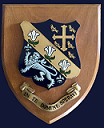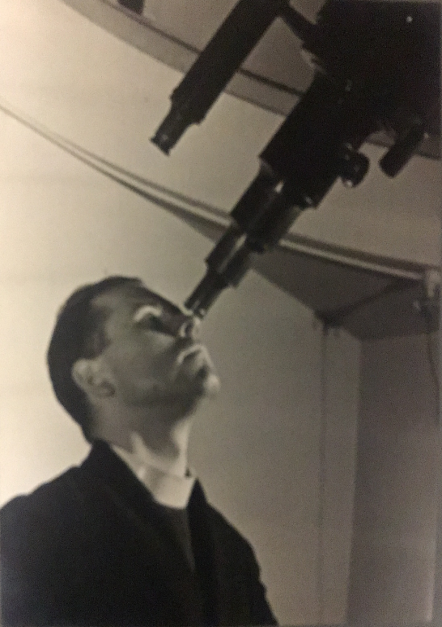
St Joseph's Society


A tribute from Canon John J Gaine
The official obituary simply records the barest framework of James Ibison’s life, and then his two appointments, first at Upholland (1930-1955) and English Martyrs, Litherland (1955 until his death in 1982). His own autobiographical article in the College Magazine tells in some detail of the transfer first from St Edward’s College to St Joseph’s College, Upholland, and the growth of the College, but little that is personal.
I regard him as a humanizing founder of the College and hope that his contribution will not fade into oblivion. After six years as a senior student (‘the Dean’) he was appointed to the staff as Prefect of Discipline in the School. Folk rumour in my days (1941) said that he was stern, and coupled with the rumour that he had some German ancestry, it earned him the nickname ‘Boche’, which his later benign behaviour softened to ‘Bosh.’ He was a born instinctive teacher, and without training took us for English up to A level and beyond. Literature was to be enjoyed rather than dissected; ‘The text is the thing, get help from the notes’ was his watchword. Battles and wrestling matches were noisy affairs, and a nervous colleague once sent a messenger from the next door classroom to ask if he needed help. We read more widely than the set books, and I think he was largely responsible for stocking the library with the Brontes and Jane Austen, as well as the Dickens and Scott that was already on the shelves.
A levels had been brought ahead a year to Poetry, and so 1944/5 was a blank school year. We hoped for a third year of philosophy (just imagine!) with a room of our own, and smoking too (just imagine!). But the authorities made it into a ‘reading year’, and Fr Ibison made the most imaginative use of the time allotted to him. Each of us had to pick a particular author, write a ‘thesis’ which he would type and bind, and then deliver a lecture on Hopkins or Trollope, or whoever we had chosen. It was an imaginative, constructive use of the opportunity, which we did not always appreciate. He also taught Christian Doctrine and set out a Christocentric course (which I must confess I do not remember in any detail.) He taught Logic to Rhetoric and it was a thorough and well-constructed course, not ahead of its time, but a good example of what was standard.
Establishing the Walthew Press (or ‘Trousers Press’, as the pantomime song had it!) was a boon to the communal life as was the pantomime itself, written by members of staff satirizing features of College life and personalities, including themselves. Somewhere there must be one or two bound copies of the scripts, with notes decoding and explaining references, commenting on the ‘infra plot’, the hidden references to College politics. They must still be in existence somewhere, and be worth a King’s ransom!
His base in the College was the first floor room in the West Tower at the end of the Oak Corridor, next door to the Head Master and close to the booth that was the staff’s link with the phone system. There, in a cloud of pipe smoke, he indulged his passion for music, another great gift to our lives. He was a more than competent pianist and took lessons from Stephen Wearing in Liverpool, an acclaimed performer and teacher. We all enjoyed Fr Ibison’s occasional performances, and I remember being vastly impressed by Sindling’s Rustle of Spring and Litolff’s Scherzo. He even persuaded the orchestra to join him in a concerto; I don’t remember which, but I do seem to remember a glitch somewhere, so he halted proceedings, went back and continued the performance. His lessons from Stephen Wearing were on Tuesdays, and on Wednesdays he generously shared with Michael Kirkham and myself – he always said that he learned more from teaching than by being taught.
His greatest contribution was on Sunday evenings in the Old Theatre. After supper he held ‘open house’ and introduced us to classical music. He provided stencilled notes and mini-scores, played and even sang themes, and then treated us to the work on his gramophone. That was a giant, a huge windup balanced turntable, with an enormous horn attached, all carted from his room. Needles were not just your common or garden steel ones, but fibre that had to be sharpened after each track, like a pencil; that guaranteed improved quality of reproduction, without danger to the vinyl records. Many of my generation owe our love of classical music to those Sunday evenings, open to all comers, not just an elite.
As the War dragged on he pledged not to have his hair cut or even trimmed, and when VE day came, he had not just a mop, but an impressive mane. He was loudly cheered when he first appeared in public after the shearing!
In 1946 he became Procurator, responsible for the infrastructure of College life, and a totally new role which he tackled with his customary vigour. He improved the stock on the farm, expanding the cattle to a fair sized herd of Friesians. These black and white cows were very curious when the students, in cassocks and cottas, black and white, processed around the Top Lake on Rogation Days chanting the Litany of the Saints. The cows lined up along the fence and joined in the chanting with their mooing, to the un-liturgical merriment of the students. An astute businessman, Fr Ibison started a College Farm milk round, but it was not well received locally, and closed down fairly soon.
Water was a much greater success; we had our own system, fed by drainage from the fields above the college and filtered through sand in beds housed around the farm. The system was adequate for the original 1884 College, but not for the greatly expanded population and there were various crises due to water shortage. Fr Ibison tackled the problem. A diviner indicated underground water in the rock underlying the bottom end of the lower lake, and funding was secured for drilling to the depth indicated, but no water was reached. He then boldly told the drilling team to carry on to the extent of their rig, and they struck water which actually flowed from the depth foretold. It took courage in those days to go beyond the limit set out by the authorities, but courage was not lacking in Fr James Ibison, and a small brick built hut at the bottom end of the lake houses the pumping equipment.
As a staff member myself, I went on to occupy the room that he had occupied, and strangely, when I was appointed to my one and only parish of St Teresa’s, Birkdale, I discovered that James Ibison had been a boy in the school there, was ordained in that church on 15 June 1930, and then celebrated his first Mass there. A circle, you might say, but one for which I am eternally grateful.
Perhaps now you can see why I regard Fr James Ibison as a humanizing founder of his College.